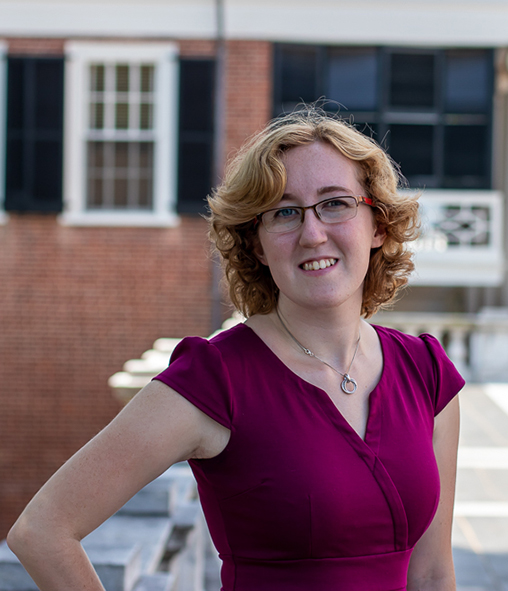
Amy Fedeski


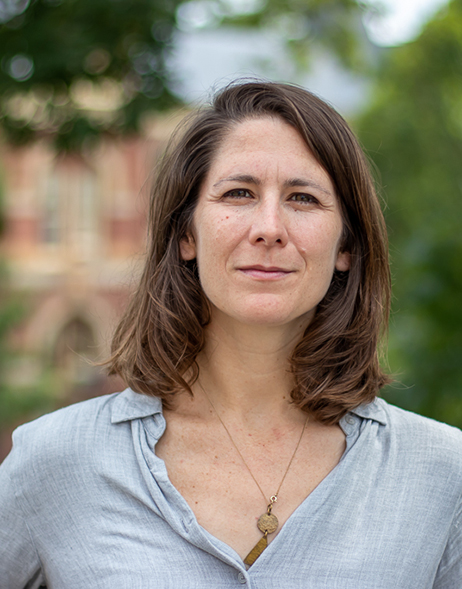
Bremen Donovan is a researcher, filmmaker, and multimedia journalist. She has worked in Sub-Saharan Africa, Southeast Asia, the Middle East, Europe, Haiti, and the United States across a range of journalistic outlets, community organizations, and non-governmental institutions including the Open Society Justice Initiative, Namati: Innovations in Legal Empowerment, Conciliation Resources, the International Rescue Committee, and various UN agencies. Her work, which has been published by The Guardian, The Chronicle of Higher Education, and ABC’s 20/20, among others, often focuses on how ordinary people and communities come to define and pursue justice. Bremen graduated from Brown University and is currently completing a PhD dissertation in anthropology about the use of video to pursue truth claims about policing in the French justice system.

I am a doctoral candidate in political science, with a focus in comparative politics and political methodology, at the University of Virginia. My research is broadly concerned with the dynamics of tolerance, pluralism, and extremism in contemporary European sociopolitical life. My dissertation explores the evolution of “the nation” as constructed in the rhetoric of the Populist Radical Right and the implications of these changes on party vote share and favorability. Using the cases of the French National Rally (RN, formerly National Front (FN)) and the Alternative for Germany (AfD) I illustrate how shifts towards more inclusive conceptions of nationhood, ones that include references to Jews and the LGBTQ community while still remaining largely antagonistic towards Muslims, have afforded these parties plausible deniability from longstanding accusations of bigotry, in turn helping them to gains support beyond their traditional bases.
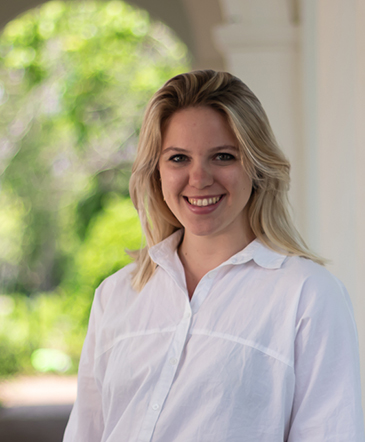
From the mountain town of Galax, Virginia, Whatley Ozer will be graduating from the University of Virginia in May of 2020 with a B.A. in Foreign Affairs and a minor in Dance. She has spent much of her time at UVA abroad—be it in Italy, the UK, or Rwanda. Whatley is interested in discovering cross-cultural similarities and differences, and how recognizing these elements can be used to rid the world of stereotypes and prejudices.
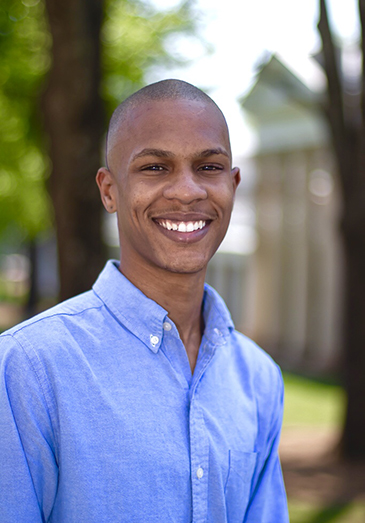
Erik Patton-Sharpe was born and raised in Wilson, North Carolina. He is a fourth year student double majoring in Black Studies and Environmental Science; minoring in Religious Studies. He enjoys studying the many shared connections between African spirituality and environmentalism, including ethnobotany, food sovereignty, and ecospirituality.
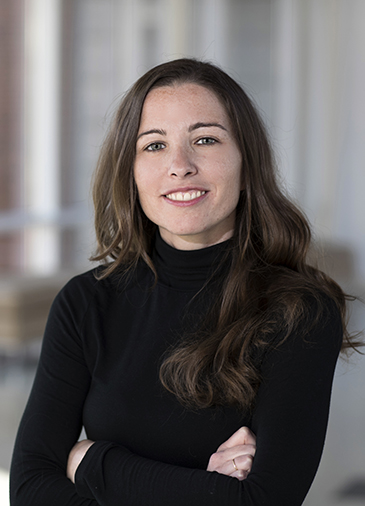
Lucila Crena is a PhD student in the Religious Studies department at the University of Virginia, in Theology, Ethics, and Culture. She is a faculty member of the Leadership, Theology, and Society program at Regent College (Vancouver, BC), and has taught courses at Comunidad de Estudios Teológicos Interdisciplinarios (CETI) and Wesley Theological Seminary. Ms. Crena comes to the academy after a career in both the private and non-profit sectors. Her research explores “the prophetic” in political discourse within plural democracies, from a theological-ethical perspective. Currently, she is exploring Argentine theologies that prioritize the perspective of the poor/the people (variously conceived), including Teología del Pueblo. As an Argentine researcher within the US, she is interested in promoting engagement between Argentine and US Latinx theologians, among others.
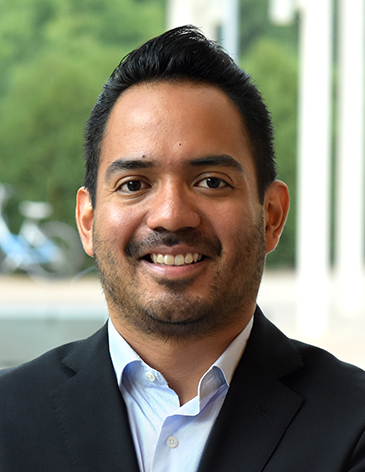
Rodrigo Castro Cornejo’s research interests include survey/experimental methods, public opinion formation, and voting behavior. His main line of research sheds light on the influence of political campaigns on voters’ electoral behavior in new democracies, particularly in Latin America. He studies the role of partisanship as a filter of campaign information as well as motivated reasoning during political campaigns. He participates in collaborative research projects aiming to understanding why voters support corrupt politicians in Latin America as well as scientific opinion on climate change.
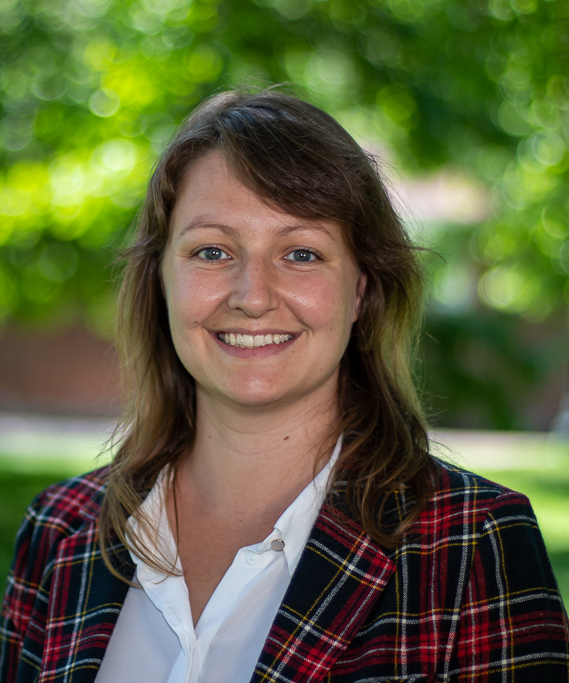
Laura Ornée is a second year Ph.D. candidate in the Corcoran Department of History at the University of Virginia. Her research interests include the history of human rights, feminism, queer activism and, more broadly, transnational social movements in the twentieth century. Previously, she earned BA and MA degrees in history from the University of Amsterdam and an MA in International Studies from Leiden University, both in the Netherlands.
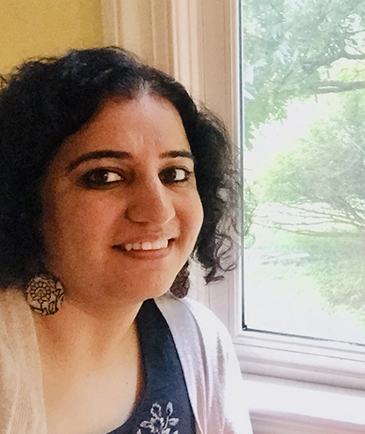
Swati Chawla is a historian of modern South Asia. She will soon finish her Ph.D. in history from the University of Virginia, with a dissertation focused on policies governing migration and citizenship claims in the Himalayan regions of postcolonial South Asia. She was recently appointed as assistant professor at the Jindal School of Liberal Arts and Humanities in O.P. Jindal Global University (India), where she will be teaching courses on Tibetans in India, South Asian Buddhism, and digital humanities.
She holds a B.A., M.A., and M.Phil. degrees in English from the University of Delhi, where she also taught as an assistant professor of English before starting her doctoral work. Swati has held fellowships with the USAID, the American Institute of Indian Studies, the Taraknath Das Foundation at Columbia University, the Institute for Humane Studies, the Institute for the Humanities and Global Cultures, Virginia Foundation for the Humanities, Koch Foundation, and the Mercatus Center at George Mason University.
She is currently working on her first book project arising from her dissertation. It studies nationalisms and citizenship claims directed against the Indian state from the Tibetan cultural region from the transition from colonial rule in the 1940s to the recent standoff at Doklam in 2017. Swati’s M.Phil. and Ph.D. work has appeared as chapters in edited volumes, and she has also co-authored an inter-disciplinary working paper under the USAID and IIE’s Research and Innovation Series titled “Increasing the Civic and Political Participation of Women in the Global South: Understanding the Risk of Strong Resistance.” Her op-eds and features regularly appear in Firstpost, The Wire, and The Quint.
She tweets @ChawlaSwati.
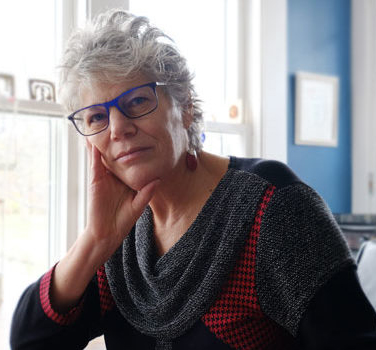
Vivien Green Fryd teaches American art from the colonial period to the present, methods in art history, American Studies, and Women and Gender Studies. She is the author of Art and Empire: The Politics of Ethnicity in the United States Capitol, 1815-1865 (Ohio University Press, 2001; reprint Yale University Press, 1992), Art and the Crisis of Marriage: Georgia O’Keeffe and Edward Hopper (University of Chicago Press, 2003), and Sexual Trauma in American Art Since 1970 (Pennsylvania University Press, 2019). She is currently writing a book manuscript entitled, “Writing Trauma: Henry Ries’ Photographs of Berlin, 1937-2004.” She has published articles in The Art Bulletin, The American Art Journal, The Winterthur Portfolio, American Art, the National Women’s Studies Association Journal, Common-place: The Interactive Journal of Early American Life, Continuum, Traumatology, and other journals, and has essays in a number of edited books, including Critical Issues in Public Art: Content, Context, and Controversy, ed. Harriet F. Senie and Sally Webster (HarperCollins, 1992), Critical Issues in American Art, ed. Mary Ann Calo (Westivew Press, 1998), and Reading Country Music: Steel Guitars, Opry Stars, and Honky-Tonk Bars, ed;. Cecelia Tichi (Duke University Press, 1998). From 2008 to 2009, Prof. Fryd served as director of “Trauma Studies,” a fellows’ program at the Robert Penn Warren Center for the Humanities.
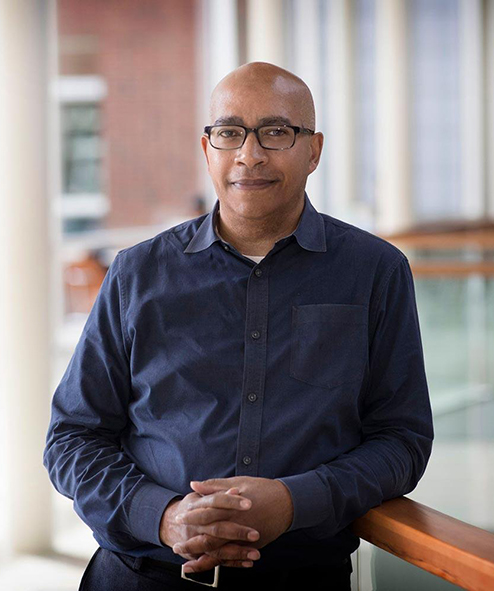
Kevin K. Gaines is the Julian Bond Professor of Civil Rights and Social Justice, with a joint appointment in the Corcoran Department of History and the Carter G. Woodson Institute for African American and African Studies. The new professorship was created to honor the legacy of Bond, the civil rights champion and former University of Virginia professor. Gaines’ current research is on the problems and projects of racial integration in the United States during and after the civil rights movement.
He is author of Uplifting the Race: Black Leadership, Politics, and Culture During the Twentieth Century (University of North Carolina Press, 1996), which was awarded the American Studies Association’s John Hope Franklin Book Prize. His book, American Africans in Ghana: Black Expatriates and the Civil Rights Era (UNC Press, 2006), was a Choice Outstanding Academic Title. Gaines is a past president of the American Studies Association (2009-10).
His current research is on the integrationist projects of African American activists, artists and intellectuals, interventions that redefined blackness and acknowledged the relationship of structural and ideological forms of racism to racial capitalism, patriarchy, and homophobia.

Kevin Stewart Rose is a doctoral candidate in Religious Studies at the University of Virginia. His research in American religious history centers on the intersection of religion, capitalism, and environmentalism in the second half of the twentieth century. His work has appeared at the American Academy of Religion, Religion and American Culture: A Journal of Interpretation, and the Religion, Race & Democracy Lab’s podcast, Sacred & Profane. His dissertation, “Living Green: The Neoliberal Climate of Protestant Environmentalism” traces the rise of Protestant environmentalism in the 1970s, focusing on the concept of “Christian lifestyle” and how its circulation reflects the influence of neoliberal conceptions of political and religious action.
Recent Comments